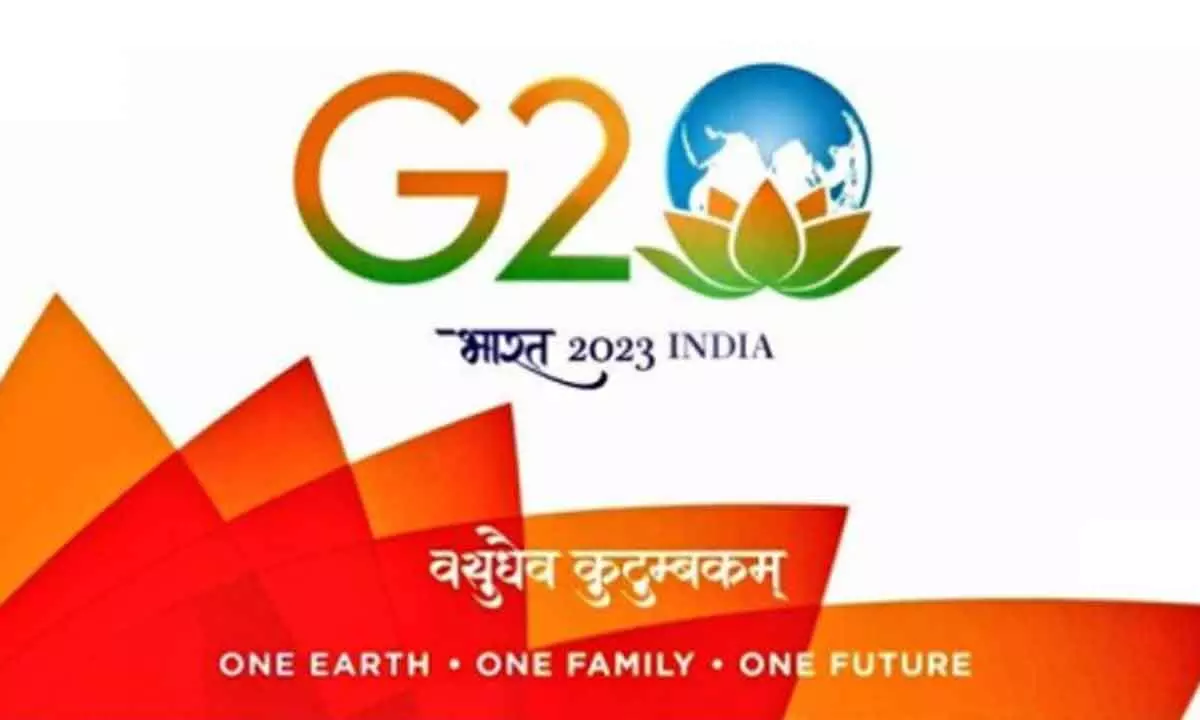India’s Image as Economic Power Risen By G20
image for illustrative purpose

India took charge of the G20 presidency at one of the most difficult times for the world since the group was created in 1999. As a result of the Ukraine war, there are sharp divisions and it has become difficult to reach a consensus even on issues relating to growth and economic development. It must be recalled that the primary purpose of the G20 was originally to improve global economic and financial cooperation and decision-making.
As is often pointed out, the group which comprises 19 countries and the European Union, accounts for 85 per cent of global GDP, 75 per cent of global trade and about two-thirds of the world’s population. It came together initially in the wake of Asian financial crisis as it was recognised that global economic upheavals could no longer be resolved by the cosy Group of Seven comprising only the developed world. Powerful developing countries also had to be brought into the discussions, if the world economy was to be kept on an even keel.
Owing to the altered geopolitical scenario, it has become difficult to keep G20 initiatives rooted in sustainable development. Even so, India has managed over the course of the past year to keep the focus on economic and developmental issues. It has also put the spotlight on this country having become not only the fifth largest economy but also the fastest growing one right now.
The presidency has equally enabled the world to see the strides achieved by India in the digital economy. It is probably here that discussions have been most enlightening for other G20 members. The data is undeniable. As much as 46 per cent of all international digital payments made in 2022 have been carried out in this country with 89.5 million transactions. Brazil is a distant second with 29.2 million transactions and China third with 17.6 million transactions. It is in this backdrop that the success of the India Stack in this country can be gauged by G20 members. Several developed and developing economies have evinced interest in emulating the digital model formulated here for implementation in their own countries.
Within the country, trade and industry have been looking towards the year long series of G20 meetings to galvanise interest in investing in this country as well as support global expansion of Indian firms. The expectation is that the focus on the economy here will add an impetus to the China Plus One policy being advocated by many multinationals. The policy envisages that corporates already having projects in China make additional investments in other regions to leverage the risks of remaining wholly involved there. The rationale is clearly based on fears over simmering Sino- U.S. tensions and possibility of an all-out conflict over Taiwan. Big Tech like Apple has already begun a slow shift to India, altering its previous policy of keeping production facilities entirely within China. The G20 dialogues are expected to further highlight this country’s advantages as a safe haven with attractive policies like the production –linked incentive (PLI) schemes for new investors.
Apart from more trade and investment opportunities, there is a feeling it could translate into better terms in trade agreements now being concluded with several countries. With India now placed at the global high table of economic policymaking, it is likely to find traversing such negotiations easier. The discussions on climate change are also expected to help Indian firms to highlight their achievements in the area of renewable energy. The transition to clean energy and the move away from fossil fuels has been an important theme in discussions at the G20. This could conceivably bring larger countries with technology and capital to work with India in these sunrise sectors, especially given that the country has set ambitious targets for green energy.
At the outset, one had commented on the fact that India’s G20 presidency has come at probably the most difficult time for the world since the group’s inception. Yet it probably could not have come at a better time for this country. Despite the adverse external environment created by the pandemic and the Ukraine war, it has demonstrated its resilience by growing faster than any other major economy. The drive to develop infrastructure has gained pace recently, while policies are now being evolved to make it easier to expand the manufacturing sector. Simultaneously the digital economy is broadening rapidly. These elements are being showcased during the G20 Presidency. Much is being made about the consensus or the lack of it in the final summit statement. The fact is, the year- long series of discussions have cemented the image of India as a leading economic power on the world stage. That is a success by any standard.

